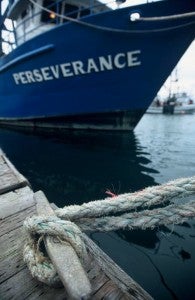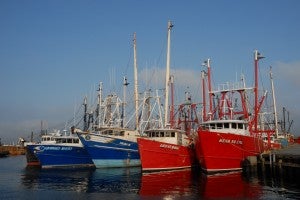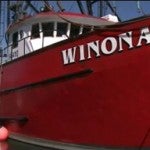 All fishing communities have one thing in common: they depend on healthy, productive fish stocks. Catch share management programs benefit fishing communities by helping to stabilize fisheries. Fishing is inherently unpredictable, because it depends so much on ever-changing conditions in the oceans. Since well-designed catch share systems give fishermen more flexibility to time their fishing activities, they are significantly better than traditional management methods at helping fishermen cope with negative fluctuations in barometric readings or in dock prices paid for the fish they deliver.
All fishing communities have one thing in common: they depend on healthy, productive fish stocks. Catch share management programs benefit fishing communities by helping to stabilize fisheries. Fishing is inherently unpredictable, because it depends so much on ever-changing conditions in the oceans. Since well-designed catch share systems give fishermen more flexibility to time their fishing activities, they are significantly better than traditional management methods at helping fishermen cope with negative fluctuations in barometric readings or in dock prices paid for the fish they deliver.
Well-designed catch share systems also include tools and mechanisms that benefit communities, things you won’t find under traditional management.
Over the years, thousands of fishing jobs have been lost due to declining fishing opportunities. Under conventional management, fishermen face ever-increasing limits on harvest levels, and shorter and shorter fishing seasons. When fishing is allowed, conventional management often forces fishermen into a dangerous and inefficient race for fish.
One example; in the days before catch shares, the West Coast trawl fishery was on a downward economic spiral. Processing plants were shuttered, infrastructure was lost, and ports became shadows of their former selves. It was death by a thousand cuts – with extended fishery closures, a federal disaster declaration, dwindling trip limits, and ever-decreasing annual catch limits, fishermen were leaving the industry and the coastal communities that relied on groundfish landings were spiraling downward. Under status quo management in place at the time, a handful of major players bought up permits and consolidated ownership. This meant even fewer owner-operators on the water. Read More »












